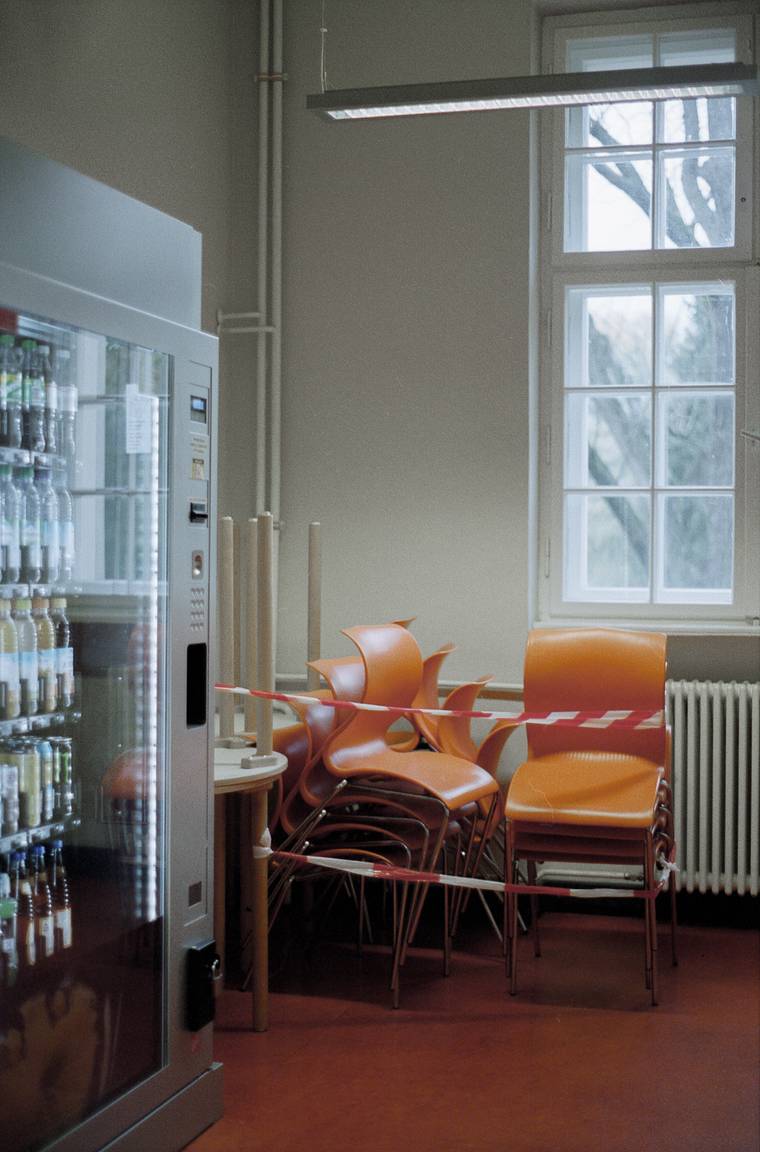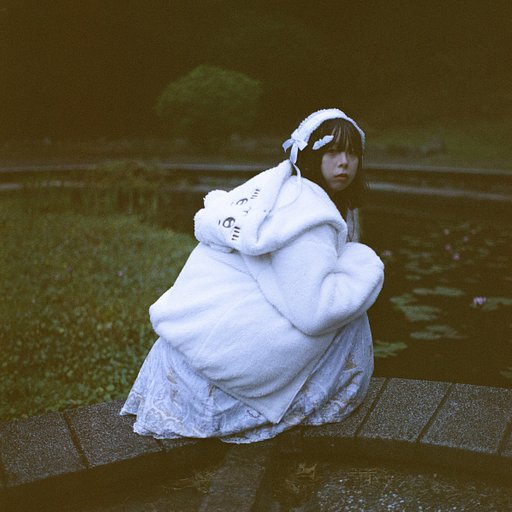Sensing the Atmosphere with Pictures: Getting to Know paule97
19 Share TweetPaul is 23 years old hailing from Berlin — and he actually works with sound pictures than still photos. Analogue photography has only accompanied Paul since his last summer vacation with his girlfriend, before that he was always "too comfortable for it". All the more we love his atmospheric photographs, which play with light and colors and take us into their world. Sit back, grab A Vita cola, get to know Paul and his photographs in this article and let yourself be inspired!

How did your journey with analogue photography begin? What does photography mean to you?
To digress a bit: In the audio field, where I work professionally, exists a very similar discourse regarding analogue recording and processing methods. Here, similar to photography, the analogue is ascribed intangible qualities such as "warmer", "less sterile" or "more organic". The tape in a recording studio, for example, could be seen as the audiovisual equivalent of analogue film. The established sound engineer with 40 years of professional experience swears by the advantages of the sonic properties of a tape recording, although it is much more complex in terms of workflow than a digital recording program and the tapes are of course much more expensive to procure than comparable hard disk capacity.
Nevertheless, it is of course very exciting to explore the world of analogue with all its peculiarities, processes, and limitations. Throwing a roll of 35mm film into an eBay camera is definitely a very accessible and comparatively inexpensive way to approach this subject. Especially as a beginner in analogue photography, I had to deal with the limitations imposed by my camera and the film in a rather fundamental way.
I find the multi-stage process of analog photography particularly exciting. Starting with first collecting 36 motifs, to developing and scanning the negatives. While I can upload and send pictures with a digital camera or a smartphone while I am still emotionally in the situation in which a picture was shot, a temporal distance to the shooting situation arises for me in analogue photography, which helps me to take another step back, to be surprised by forgotten details and to edit the pictures in a more decelerated way.
"Whether digital or analogue...in the end it depends on how a picture works even without me having to tell the viewer on how many millimeters or megapixels and with which rare camera it was created. I hope everyone finds the tools, techniques and routines that keep them going and keep the fun of photography going."
For me, the whole thing started this summer when I went on vacation with my girlfriend and we took an old Agfa and a point and shoot. I've been wanting to get into analogue cameras for a while, but I've always been too comfortable for it.
What equipment do you use (most)? Do you have different equipment for different shooting situations?
In everyday life I always have a Point and Shoot ready to hand in the side pocket of my backpack, although to be honest I now only take this camera out when things have to happen really quickly. For everything else, I keep a Minolta SLR camera on the bottom of my bag among a thousand other things. For those who love automatics, it must be very amusing to see how long it takes me to set the manual focus of my old 50mm lens reasonably to my liking. In the case of 'low light' subjects and long exposures, I usually have my tripod and a cable release with me. Since I don't use an external light meter at the moment, shutter speeds are often based on estimates or measurements with smartphone apps.
Light plays a big role in your photography - How do you choose your subjects and can you tell us a bit about your shooting process?
Lighting conditions are of course a very big factor when it comes to translating everyday things and situations into aesthetically pleasing photography. As simple as it may sound, however, the more difficult it is for me as a beginner to recognize these potentials without producing generic "blue hour with vintage vibes" images.
In general, I am never explicitly looking for motifs. Sometimes I don't take any photos at all for weeks if nothing appropriate presents itself. When I take pictures, I often get inspired by new surroundings and situations that are unknown to me. Since it was not long ago that I held an analogue camera for the first time, I try not to force a style but to take different experiences with me to find out in the long run what I like more or less.
Do you have a favorite photo? Why do you like it particularly well?

At the moment I like this picture. I like the decelerated mood, the orange tone, and my mother wanted a print of it for Christmas.
Last but not least: Do you have some inspiring words/tips for our readers?
In the end, I can only address those who have just started out with photography like me or are planning to do so. In the beginning, I ran the risk of photographing everything that I found remotely interesting, instead of photographing selected subjects that I was really convinced of. That's why I now try to find the right balance in this respect, so as not to get too picky on the other hand. The same applies to the quality or my own perception of my images. Even though I'm aware that in five years I'll probably be less satisfied with many of my current images than I am now, it's still important not to hide, to post photos with some regularity, to get feedback from others, and to learn from people with more experience.
It is also interesting that pictures of mine, which I like less, are more appealing to other people and vice versa. Of course, the most important thing is to invest more time in your own work and skills than to spend it on eBay to buy more and more redundant equipment.
No matter if digital or analogue...in the end, it depends on how a picture looks like without having to tell the viewer how many millimeters or megapixels and with which rare camera it was made. I hope everyone will find the tools, techniques, and routines that keep them going and keep the fun in photography.
Many thanks and congratulations on these wonderful shots to Paul! Check out his LomoHome and one of his Instagram accounts moses.lofi or paulberlin97 to not miss any of his work!
written by alinaxeniatroniarsky on 2021-01-25 in #people



















未有留言